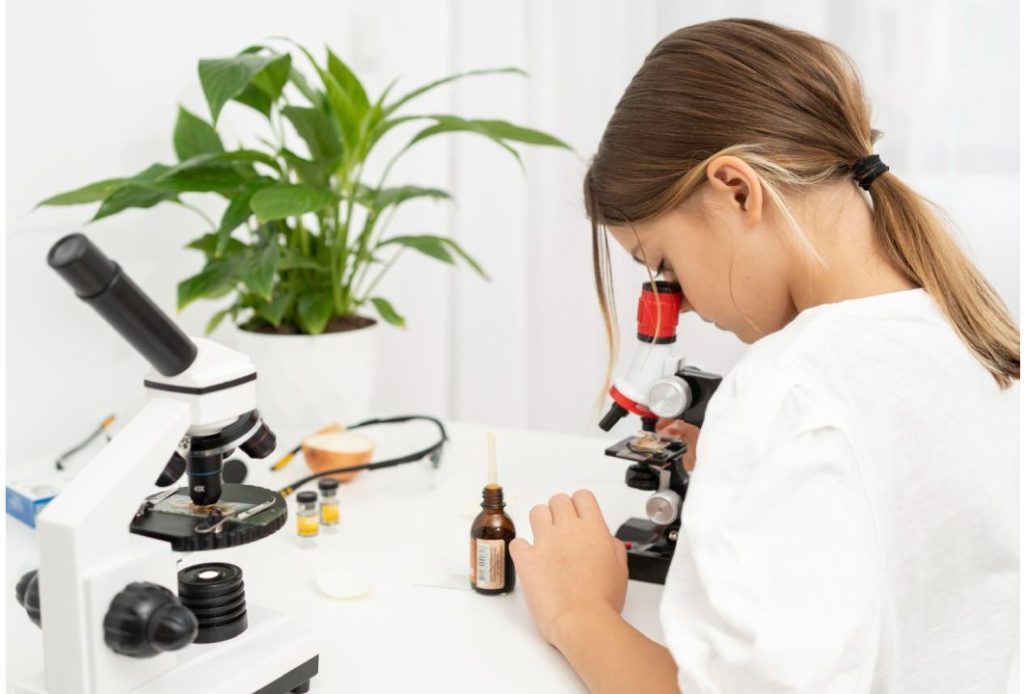Biology is the study of life in all its forms and complexities, making it one of the most fascinating and relevant sciences. From understanding the intricacies of ecosystems and genetic inheritance to the mechanisms of the human body, mastering biology involves not only excelling in theoretical knowledge but also applying it to solve real-world problems. In real life, biology shapes industries, improves health, conserves the environment, and advances technology.
Table of Contents
ToggleThis in-depth article explores how to master biology in real life by emphasizing the connection between classroom learning and practical applications. We will cover key strategies, real-life examples, and areas where biology plays a crucial role in solving global challenges.
1. Foundational Understanding: Biology’s Relevance to Daily Life
Before diving into advanced applications, it’s crucial to establish a solid foundational understanding of biology. Biology touches nearly every aspect of our daily lives. Here are a few examples:
- Health and Medicine: Biology helps us understand how our bodies function, how diseases spread, and how medications work. Knowledge of human biology, microbiology, and immunology is essential for making informed health decisions.
- Nutrition and Food: Understanding biology helps us make better dietary choices. It explains how the body metabolizes different nutrients, the role of vitamins and minerals, and the impact of genetically modified organisms (GMOs) on food production.
- Environment: Biology explains ecosystems, biodiversity, and the impact of human activities on the planet. This knowledge is critical for conserving natural resources and protecting endangered species.
Key Takeaway: To master biology in real life, you must first recognize how biological principles apply to everyday decisions, from the food we eat to the medicines we take, and how we interact with the environment.
2. Connecting Theory to Practice: Hands-On Learning
One of the most effective ways to master biology is through hands-on, experiential learning. Practical experiences allow you to apply theoretical knowledge and understand biological processes in real time. Here are some practical approaches:
a. Laboratory Work
Whether you’re a student or a professional, lab work is essential for mastering biology. Conducting experiments and analyzing data help solidify your understanding of biological concepts. Labs provide opportunities to:
- Observe cellular processes under a microscope, such as mitosis and meiosis.
- Dissect organisms to learn about anatomy and physiological systems.
- Perform genetic experiments, such as DNA extraction or polymerase chain reaction (PCR), to explore inheritance patterns.
b. Fieldwork
Fieldwork is another crucial element of hands-on biology. Observing organisms in their natural habitat gives you insights into ecology, animal behavior, and evolutionary adaptations. You can:
- Survey ecosystems to study the relationships between organisms and their environment.
- Track migration patterns of birds or animals to understand seasonal behaviors.
- Monitor plant growth under different environmental conditions to study photosynthesis, water usage, and adaptation.
Key Takeaway: Engaging in laboratory work and fieldwork provides invaluable real-world experience, allowing you to see how biological principles manifest outside textbooks.
3. Biology and Technology: The Role of Biotechnology
Biotechnology is a perfect example of how biological knowledge is applied in real life to develop technologies that improve agriculture, medicine, and environmental management. Here’s how biotechnology is shaping the future:
a. Medical Applications
Biotechnology has revolutionized healthcare with innovations such as gene therapy, personalized medicine, and CRISPR (a powerful gene-editing tool). Biologists contribute to:
- Creating vaccines and therapeutic drugs based on an understanding of the human immune system and pathogen biology (e.g., mRNA COVID-19 vaccines).
- Gene editing to correct genetic defects in hereditary diseases.
- Stem cell research for regenerative medicine, where damaged tissues and organs can potentially be repaired or replaced.
b. Agricultural Biotechnology
Biotechnology enhances food production through genetically modified crops that are resistant to pests, diseases, and extreme environmental conditions. This includes:
- Creating drought-resistant crops to improve food security in arid regions.
- Developing pest-resistant plants reduces the need for chemical pesticides.
- Bioengineering crops with enhanced nutritional value (e.g., Golden Rice enriched with vitamin A).
c. Environmental Biotechnology
Environmental biotechnology focuses on using biological systems to solve environmental problems. Examples include:
- Bioremediation, where microbes are used to clean up oil spills or detoxify polluted environments.
- Developing biofuels reduces our reliance on fossil fuels and lower greenhouse gas emissions.
- Conservation genetics, where genetic tools are used to protect endangered species and maintain biodiversity.
Key Takeaway: Biotechnology is a cutting-edge field that exemplifies how mastering biology can lead to tangible advancements in healthcare, agriculture, and environmental sustainability.
4. Mastering Biological Research: The Role of Inquiry and Critical Thinking
To truly master biology in real life, it is essential to develop strong research skills and cultivate a critical thinking mindset. Biological research drives innovation, and being able to ask meaningful scientific questions is key to progress in the field.
a. Formulating Hypotheses
Effective research begins with asking the right questions. For example, if you are studying climate change’s impact on coral reefs, you might hypothesize that increasing ocean temperatures are leading to coral bleaching. Research then involves designing experiments or collecting data to test this hypothesis.
b. Data Collection and Analysis
Learning to collect, interpret, and analyze biological data is essential. Whether you are counting populations of organisms in a habitat, measuring enzyme activity, or sequencing DNA, data is the backbone of biological research.
- Use statistical tools to analyze your data and determine whether your hypothesis is supported.
- Compare results with existing literature to see how your findings fit into the broader context of the field.
c. Publishing and Communicating Science
Once you’ve conducted research, it’s important to communicate your findings. Writing scientific papers, presenting at conferences, or participating in citizen science initiatives are all ways to share your work with the wider community.
Key Takeaway: Research is a critical component of mastering biology, and the ability to design experiments, analyze data, and communicate findings is essential for real-world application.
5. Interdisciplinary Applications of Biology
Biology does not exist in isolation. It intersects with many other fields, such as chemistry, physics, engineering, and computer science. Mastering biology often requires an interdisciplinary approach to solving complex problems.
a. Biophysics and Biochemistry
Understanding biological systems at the molecular level often requires knowledge of chemistry and physics. For example:
- Biophysicists study the mechanical properties of cells and tissues, such as how muscles contract or how proteins fold.
- Biochemists explore chemical reactions within cells, helping to understand processes like metabolism, DNA replication, and cellular respiration.
b. Bioinformatics and Computational Biology
With the explosion of biological data from genome sequencing and other high-throughput technologies, computer science plays a crucial role in modern biology. Bioinformatics tools allow biologists to:
- Analyze large datasets, such as whole genomes, to identify genetic markers for diseases.
- Model biological systems, such as ecosystems or population genetics, to predict outcomes under different scenarios.
Key Takeaway: Biology is inherently interdisciplinary, and mastering it often involves learning how to integrate knowledge from other fields to understand life at a deeper level.
6. Ethics in Biology: Making Responsible Choices
As biologists gain the ability to manipulate living systems—whether through genetic engineering or conservation strategies—there are ethical implications that must be considered. Some of the ethical questions biologists must grapple with include:
- Gene editing: Should we edit the human genome to eliminate genetic diseases, or could this lead to unforeseen consequences?
- Biodiversity: How do we balance human development with the need to preserve endangered species and ecosystems?
- Animal testing: Is it ethical to use animals in research, and if so, under what conditions?
Mastering biology requires not only technical expertise but also the ability to navigate these ethical considerations thoughtfully.
Key Takeaway: Ethical decision-making is a key aspect of applying biological knowledge responsibly in the real world.
7. Conservation and Sustainability: The Biological Imperative for the Future
One of the most important real-life applications of biology is in conserving biodiversity and promoting sustainability. Biological knowledge helps address global challenges such as climate change, habitat loss, and species extinction.
a. Ecosystem Conservation
Biologists work to preserve natural ecosystems by studying the relationships between organisms and their environments. Conservation biology focuses on protecting endangered species and restoring damaged ecosystems.
b. Sustainable Practices
In agriculture, forestry, and fisheries, biology informs sustainable practices that balance human needs with environmental protection. For example:
- Agroecology promotes sustainable farming practices that mimic natural ecosystems.
- Sustainable fisheries aim to prevent overfishing while maintaining fish populations for future generations.
Key Takeaway: Mastering biology in the real world means applying knowledge to create sustainable solutions that protect life on Earth for future generations.
Conclusion: The Path to Mastery
Mastering biology in real life requires more than just memorizing facts from textbooks. It demands curiosity, critical thinking, practical experience, and a willingness to explore the intersections between biology and other disciplines. Whether you are in a lab, in the field, or applying biological knowledge to solve global problems, mastering this science can empower you to make meaningful contributions to society and the planet.






